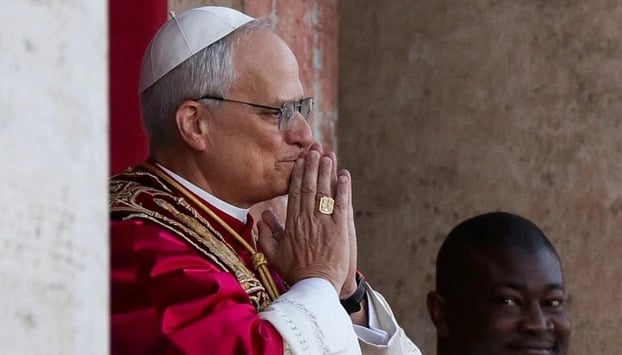Lessons from Peru That Pope Leo XIV Could Bring to the Vatican
This blog analyzes the practical wisdom and diverse perspectives Pope Leo XIV gained from his time in Peru and how these could influence the Vatican's operations and priorities.


The election of Pope Leo XIV, with his extensive background serving the Catholic Church in Peru, offers a unique opportunity for the Vatican. Beyond his American heritage, his decades spent immersed in the vibrant and often challenging realities of the Peruvian Church could bring fresh perspectives and innovative working methods to the heart of the Catholic world. What valuable lessons might Pope Leo XIV have gleaned from his time in Peru that could enrich the universal Church?
A "Boots on the Ground" Approach to Pastoral Care:
In Peru, Cardinal Prevost served as a parish pastor and a bishop, experiences that kept him closely connected to the daily lives and struggles of the faithful. This "boots on the ground" approach to pastoral care, prioritizing direct engagement with communities, contrasts with the more bureaucratic structures sometimes perceived within the Vatican. Pope Leo XIV might bring a renewed emphasis on listening to and understanding the needs of local churches and fostering a more direct line of communication between the Vatican and the global Catholic community.
Resourcefulness and Adaptability in the Face of Challenges:
The Church in Peru often operates with limited resources and in the face of significant social and economic challenges. Cardinal Prevost's experience in this context likely honed his resourcefulness and adaptability. He may bring a practical, problem-solving mindset to the Vatican, encouraging innovative solutions and a more efficient allocation of resources to better serve the needs of the Church worldwide, particularly in developing nations.
A Deep Understanding of Diverse Catholic Expressions:
Peru boasts a rich tapestry of Catholic expressions, blending indigenous traditions with mainstream practices. Cardinal Prevost's immersion in this diverse religious landscape could bring a greater appreciation for the variety of ways faith is lived and celebrated across the globe. This understanding might foster a more inclusive and culturally sensitive approach from the Vatican, recognizing and valuing the unique contributions of different local churches.
A Prioritization of Social Justice and Advocacy for the Marginalized:
As discussed previously, Peru has a strong tradition of the Church advocating for social justice and standing in solidarity with the poor and marginalized. Cardinal Prevost's long involvement in this context likely instilled in him a deep commitment to these principles. He might bring a renewed urgency to the Vatican's social justice agenda, advocating for the rights of the vulnerable on a global scale and challenging systemic inequalities with a perspective informed by his direct experience.
Collaborative Leadership within the Bishops' Conference:
Cardinal Prevost served within the Peruvian Bishops' Conference, a body that operates through collaboration and consensus-building. This experience in collective leadership could influence his approach to governance within the Vatican, potentially fostering a more collegial and collaborative environment among the various dicasteries and with bishops around the world.
A Focus on Grassroots Evangelization and Missionary Outreach:
The Church in Peru has a strong missionary spirit, actively reaching out to communities and sharing the Gospel in diverse settings. Cardinal Prevost's involvement in this dynamic environment could bring a renewed emphasis on grassroots evangelization within the Vatican's strategic planning. He might champion initiatives that empower local churches to be active agents of evangelization in their own contexts.
Potential for a More "Global South" Perspective:
Having spent a significant portion of his ministry in the Southern Hemisphere, Cardinal Prevost likely possesses a deeper understanding of the perspectives and priorities of the "Global South," where the majority of the world's Catholics reside. This could lead to a more balanced and inclusive approach from the Vatican, giving greater weight to the concerns and voices of churches in developing nations.
Conclusion: A Reservoir of Practical Wisdom for the Vatican:
Pope Leo XIV's time in Peru represents a rich reservoir of practical wisdom and diverse perspectives that could significantly benefit the Vatican. His "boots on the ground" experience, his resourcefulness, his appreciation for diverse Catholic expressions, his commitment to social justice, his collaborative leadership style, and his understanding of the Global South offer the potential for a fresh and dynamic approach to the challenges and opportunities facing the Catholic Church in the 21st century. The lessons learned in the vibrant and resilient Church of Peru could indeed bring a new and vital energy to the heart of the Catholic world.
Frequently asked questions
What's the main idea of this blog post?
It explores potential new perspectives and working methods Pope Leo XIV might bring to the Vatican based on his time in Peru.
What's one key lesson from Peru mentioned in the article?
The article highlights a potential "boots on the ground" approach to pastoral care.
What emphasis might he bring to social justice based on his Peruvian experience?
He might bring a renewed urgency to the Vatican's social justice agenda and advocacy for the marginalized.
Could his time in Peru influence the Vatican's view of diverse Catholic expressions?
Yes, it might lead to a greater appreciation for the variety of faith expressions globally.
How could his time in Peru influence the Vatican's outreach to the Global South?
He might bring a deeper understanding and give greater prominence to the perspectives of churches in developing nations.
How might his experience in Peru affect resource management at the Vatican?
He might encourage resourcefulness and adaptability in the face of challenges.
